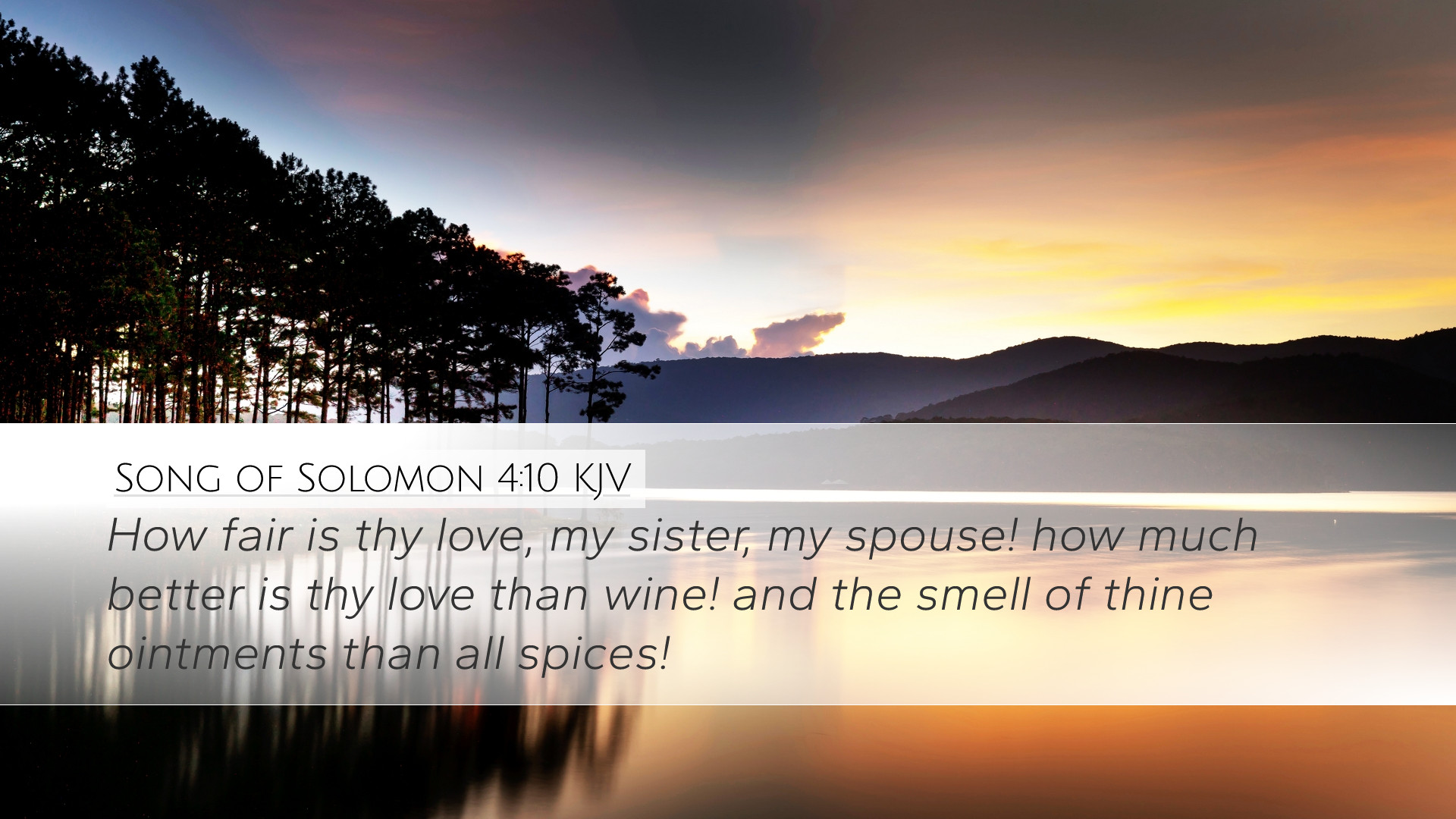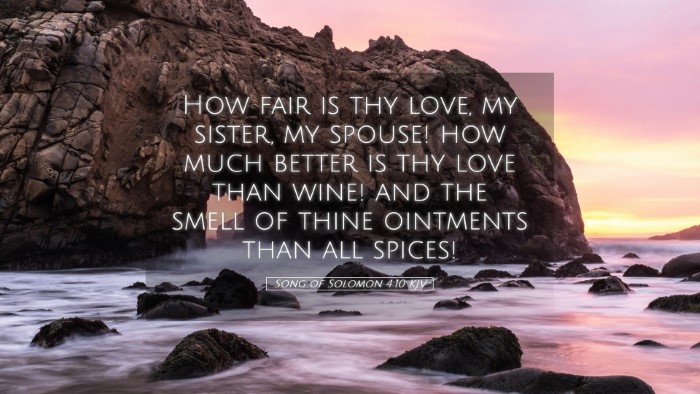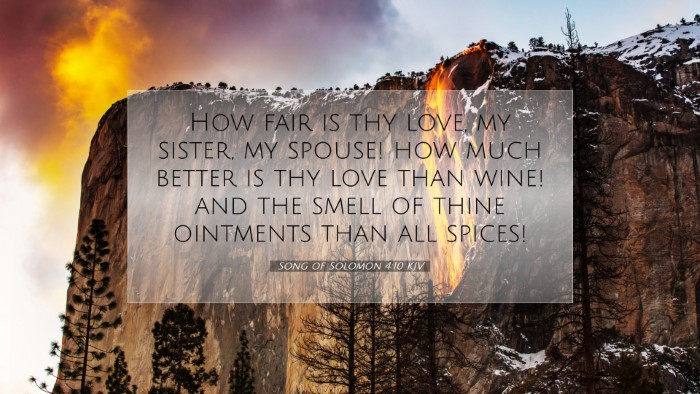Commentary on Song of Solomon 4:10
Verse: "How delightful is your love, my sister, my bride! How much more pleasing is your love than wine, and the fragrance of your perfume more than any spice!"
Introduction
Song of Solomon, also known as the Song of Songs, is a poetic expression of love, often interpreted through various lenses, including romantic love, divine love, and allegorical readings relating to Christ and the Church. Chapter 4:10 is a pivotal verse that emphasizes the nature of love as exquisite and precious.
Exegesis and Theological Insights
This verse reflects a deep appreciation for love, which is likened to wine and perfume, both symbols of pleasure and richness.
1. The Nature of Love
Matthew Henry notes that the love expressed here is not merely physical but encompasses profound emotional and spiritual dimensions. It is a love that brings joy and satisfaction—qualities often associated with abundant and rich experiences in life.
2. Delight in Love
Henry further comments that the term "delightful" speaks to the intrinsic joy found in love, indicating that true love possesses qualities that far surpass mere attraction. The bridegroom’s praise highlights an intimate bond, reinforcing that love here is both familial and romantic.
3. Comparisons of Love
Albert Barnes draws attention to the comparisons made in the verse: "your love is more pleasing than wine." Wine often symbolizes joy and exuberance in the Scriptures, suggesting that the love between the two is of such a nature that it surpasses even those life-giving pleasures.
The emphasis on perfume indicates a treasured and pleasing aroma, which further enhances the allure of love. Clarke alludes to how scents often evoke memories and emotions, making them potent symbols of affection.
Contextual Understanding
Contextually, this verse resides within a rich tapestry of mutual adoration and desire between the bride and bridegroom. The poetic interchange reflects the broader context of romantic expression in ancient Near Eastern literature.
1. Cultural Significance
In the ancient world, wine and perfumes were prized commodities, often associated with celebration, festivity, and divine favor. The bridegroom’s declaration suggests that true love is far superior to these worldly delights.
Henry emphasizes that this expression of love indicates intimacy. It encourages the reader to reflect on the relational dynamics present in the church, as Christ's love for His bride—the Church—exhibits similar delight and value.
2. Spiritual Implications
From a theological perspective, Clarke elucidates that this verse can be viewed as an allegoric reference to God’s love for His people. The fragrance and delight of love echo the sentiments expressed in the New Testament, where the love of Christ is compared to a sweet aroma pleasing to God (Ephesians 5:2).
Application for Pastors and Theologians
For pastors and forecasters of the faith, this verse provides rich ground for exploring the depths of love within the church and in personal relationships. The call to embrace the depth of love resonates with the fundamental role that love plays in the Christian faith.
1. Love in Ministry
Both Clarke and Barnes encourage ministers to cultivate a love for their congregations that mirrors the delight reflected in this passage. Genuine love leads to service, nurturing relationships based on mutual respect and partnership in ministry.
2. Richness of Relationships
Exploring love as a multifaceted experience reminds church leaders to foster environments where relational richness can thrive. As wine and perfume enrich experiences, so too does the practice of love enhance the community life of believers.
Conclusion
Song of Solomon 4:10 serves as a profound reminder of the power and beauty of love. The illustration of love transcending mere physical attraction invites a deeper exploration of human relationships, reflecting the divine love that Christians are called to embody.
In summary, both the historical context of this verse and its application in modern faith communities emphasize the paramount significance of love—an element that enriches lives, furthers relational depth, and mirrors God's affection for humanity.


